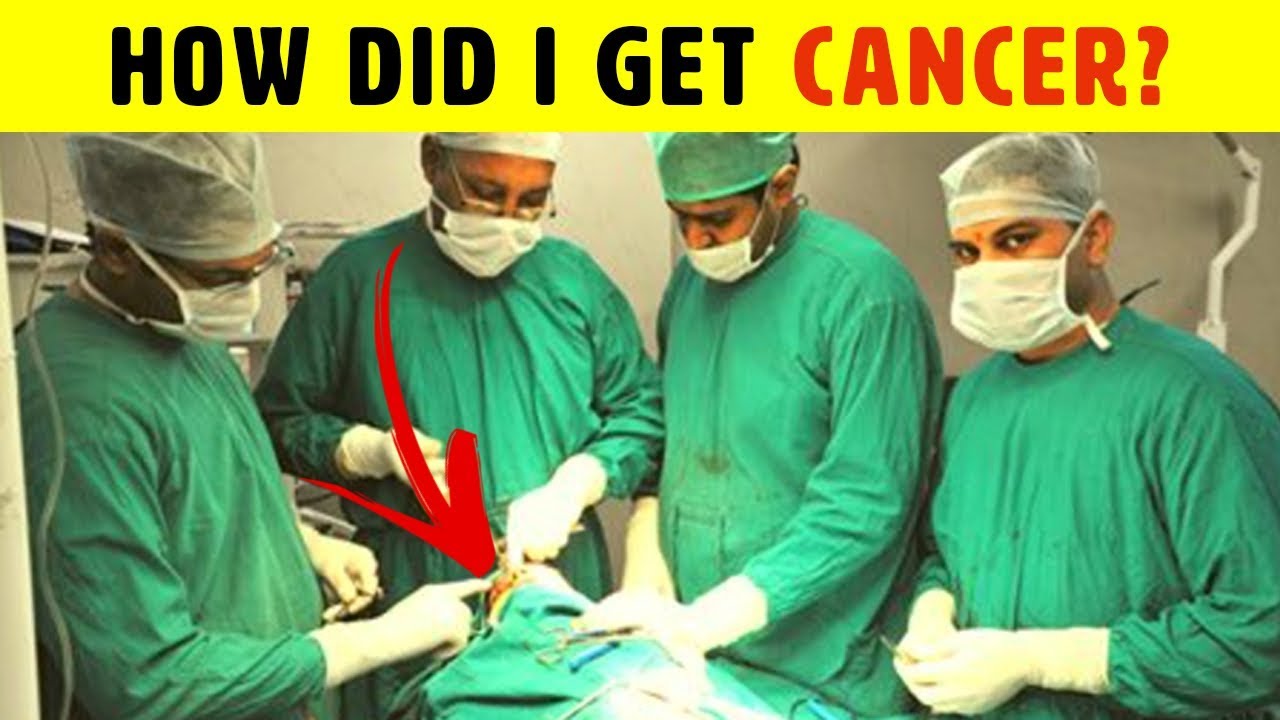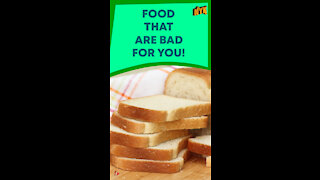Premium Only Content

Top 5 Cancer Causing Foods You Should Avoid
Learn which foods cause Cancer and avoid them. Learn how you can still get cancer even if you don't smoke or drink and eat well and exercise. Cancer is a very common disease in this day-and-age. According to statistics, 1 in 3 people will get it at some point in their life. This is a pretty big number, and may come as a shock to a lot of you. But facts are facts, and it is extremely important to understand what factors may put certain people at risk for certain diseases.
#Cancer #PreventCancer #CancerFood
Timestamps:
1. Pesticides: 2:03
2. Preservatives: 3:26
3. Adulterants: 4:54
4. Hygiene: 6:18
5. Degreening Agents: 7:09
Music:
https://www.youtube.com/audiolibrary/...
Summary:
Now, here’s how the quality of the food that you are eating can be setting you up for a cancer diagnosis.
1. Pesticides: The Environmental Protection Agency (EPA) states that a pesticide is "any substance or mixture of substances intended for preventing, destroying, repelling, or mitigating any pest". In simple terms, this means that pesticides help protect crops from outside factors or forces that can damage them. For farmers and those who grow their own crops, pesticides are essential because they are used to protect crops from insects. But there is always a risk of developing pesticide poisoning and even cancer. Avoiding fruits and vegetables is not the answer to avoiding these risks, but switching to more organic foods may be the best way to move forward.
2. Preservatives: Preservatives were used to keep foods safe and edible for long periods of time. Preservatives are chemicals which are added to foods to prevent them from spoiling. They can either be natural or man-made. Many of the packaged foods we buy require some type of preserving agent to protect us from food poisoning. Preservatives are acidic in nature. This prevents organisms from growing in food. Some examples include salt, sugar and vegetable oil. Doesn’t seem so harmless right? They not only preserve the food, but also provide the body with nutrition when consumed at required amounts.
3. Adulterants: Adulterants in food and beverages are considered to be substances which are not legally allowed to be put into the foods we consume. An example of a tampering chemical in the food we are consuming is food colorants. Companies used to use natural food colorants such as pure beet/ pomegranate juice, carrot juice, spinach powder, parsley juice, turmeric powder, blueberry juice and cocoa powder. But because their shelf life is low, they have steered away from them.
But now food industries have started using adulterants which range from chalk powder, saw dust, non-permitted dyes to coal tar. Companies have also started using synthetic food colorants such as Red 40, Blue 1 and Yellow 5, even though they are aware that they have been proven to cause long-term health problems. Some other examples of the most common adulterated foods include: vanilla extract, maple syrup, grape wine, apple juice, coffee, orange juice, saffron, and more.
4. Hygiene: We all love street food. Whether it is a tasty hot dog, fresh cut fries, or a delicious hamburger, we all enjoy the nostalgia. Street food is also pretty tempting after a long night out on the town with your friends. Who can resist a little bit of grease after a fun night!? However, there are certain health risks that come from street vendors such as vehicular emission, carbon dioxide and air pollutants, which are all absorbed into the foods we eat. Some risks associated with eating street foods include food borne illnesses like diarrhea, fever, and food poisoning. So as tempting as that greasy street hot dog might seem after a long night of karaoke, it might not be worth it. Eat at your own risk!
5. Degreening Agents: Degreening treatment is used to stimulate the breakdown of chlorophyll in early season harvested citrus. This helps bring out the color of certain fruit peels (oranges and lemons, for example), and is a common commercial practice.
As discussed earlier, we do not have the ability to store our vegetables and fruits for long periods of time. So when they are harvested, they are treated with degreening ripening agents such as calcium carbide and ethylene. Calcium carbide can be hazardous to our bodies. This is because calcium carbide is known to contain traces of phosphorus and arsenic. Studies state that eating fruits which have been artificially ripened can be harmful. We unknowingly consume these foods without knowing that we are reducing our life expectancy.
-
 9:21
9:21
Bestie
2 years ago9 Mosquito-Repelling Plants You Need In Your Backyard ASAP
5692 -
 2:16
2:16
NowYouKnowEnglish
4 years agoFoods That You Should Avoid?
1.12K -
![Foods You Should Never Microwave [GMG Originals]](https://1a-1791.com/video/s8/1/p/2/3/Q/p23Qb.0kob-small-Foods-You-Should-Never-Micr.jpg) 2:20
2:20
Shared Health
3 years agoFoods You Should Never Microwave [GMG Originals]
858 -
 3:44
3:44
NTD News
3 years ago $0.10 earnedFoods That Help Fight Cancer
368 -
 4:03
4:03
Mental Health & Wellness
4 years agoDepression Causing Foods
36 -
 1:42
1:42
NowYouKnowEnglish
4 years agoTop 3 Vegetables You Should Avoid Eating Raw
1.65K -
 1:13
1:13
AfricanNewsAgency
3 years ago $0.01 earnedYou should eat these 5 foods to keep a healthy prostate
591 -
 5:40:08
5:40:08
RamrodJenkins
11 hours agoSunday Funday! Doing more quests on Avowed!
78.8K4 -
 5:27:02
5:27:02
Pepkilla
12 hours agoWe playing what we wanna play today :)
69.7K7 -
 3:08:22
3:08:22
GamerGril
10 hours ago🔥Hell Hath No Fury Like A Woman Scorned🔥
76.2K2